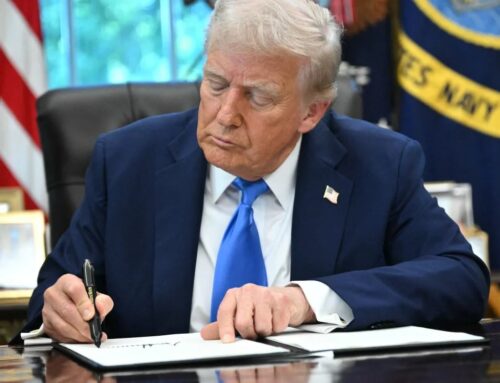$7 Billion Bitcoin Fraud Trial to Begin in London—What You Need to Know
September 21, 2025
In brief
- The alleged mastermind behind a cross-border investment fraud case is set to go on trial in London this month.
- The defendant is accused of organizing a Ponzi scheme, the proceeds of which were laundered into Bitcoin now worth some $7 billion.
- The case poses challenges over how defrauded investors demonstrate that they have a “legitimate proprietary claim” to the funds, experts told Decrypt.
The trial of the alleged mastermind of a $7 billion cross-border investment fraud is set to begin in London on September 29, with the case expected to set precedents for how authorities in the UK handle compensation for crypto-related financial crime.
The defendant is Chinese national Zhimin Qian, who is the alleged organizer of a fraudulent investment scheme that victimized nearly 130,000 investors in China.
She is alleged to have operated the Tianjin Lantian Gerui Electronic Technology Company, which between 2014 and 2017 sought customers for a Ponzi-style investment product that offered returns of between 100% and 300%.
The scheme collapsed in 2017 after China’s blanket ban on cryptocurrency activities, with Qian fleeing to the UK that same year, having laundered the scheme’s proceeds into Bitcoin now worth around $7 billion.
British authorities were able to seize 61,000 BTC between 2018 and 2021, as part of anti-money laundering investigations into Qian’s co-conspirator Jian Wen, a onetime takeout worker who was found guilty of money laundering in March 2024.
Qian is now facing her own trial, yet the complexities of the case could make it difficult to secure a conviction, according to legal experts.
“The cross-border nature makes the prosecution of Qian an uphill struggle for UK prosecutors,” said Yuhua Yang, a partner at London-based Thornhill Legal.
Noting that the fraudulent activities occurred in China, Yang explained to Decrypt that no UK companies or entities were involved in the alleged criminal activity, and that no assets passed through UK financial institutions.
“From the criminal perspective, the burden of proof rests on the prosecution for English proceedings,” she said. “It can be challenging for the UK authorities to collect evidence from China, such as victim statements, financial records and company documents of Lantian Gerui, to prove the Bitcoins were derived from fraudulent fundraising in China.”
Crypto-focused case
It’s because of this potential difficulty that the UK’s Crown Prosecution Service has not charged Qian with fraud or money laundering, instead focusing on two related charges: the unlawful possession and transfer of cryptocurrency, and the acquisition, use and possession of criminal property.
And for other legal experts, it’s this focus that makes the case more manageable for UK prosecutors.
“The State chose not to prosecute Zhang for the fraud against hundreds of thousands of Chinese investors because that conduct took place in China and had no direct link to England and Wales,” said Ashley Fairbrother, a Partner at EMM Legal.
Speaking to Decrypt, Fairbrother explained that, according to the well-established Anwar principles, the prosecution does not have to prove fraud, and that it would be enough to prove that the assets in question were obtained via criminal activity, “even if the precise offence cannot be established.”
While accepting that it would be difficult to source direct evidence from China, Fairbrother noted that a British jury has already convicted Qian’s associate Jian Wen of a similar offence, most likely using much the same evidence.
Fairbrother explained, “The law itself is not unprecedented here and is well equipped to deal with this situation; what is unprecedented is the sheer scale of the money involved—comparable to the annual GDP of some countries.”
The $7 billion Bitcoin question
It’s the large sum of Bitcoin—now worth around $7 billion—that makes the upcoming case interesting, according to Fairbrother, with civil recovery proceedings underway to determine how victims may be compensated.
“The Chinese investors will need to demonstrate that they have a legitimate proprietary claim to the funds,” he said. “Given the size and complexity of the fraud, that will be a considerable challenge.”
Given the sums at stake and potential difficulties involved, Fairbrother suggests that it’s “very likely” that the civil case will ultimately reach the UK Supreme Court.
Daily Debrief Newsletter
Start every day with the top news stories right now, plus original features, a podcast, videos and more.
Search
RECENT PRESS RELEASES
The 20 best horror movies on Amazon Prime Video, ranked by scariness
SWI Editorial Staff2025-09-21T08:21:14-07:00September 21, 2025|
My top five value streaming services of 2025
SWI Editorial Staff2025-09-21T08:20:53-07:00September 21, 2025|
How New Visa Rules By Trump Is Shattering American Dream For Many Indians
SWI Editorial Staff2025-09-21T08:20:39-07:00September 21, 2025|
Pack smart with up to 49% off Amazon’s top travel deals ahead of October Prime Day
SWI Editorial Staff2025-09-21T08:20:20-07:00September 21, 2025|
Understanding Donald Trump’s $100,000 Immigration Fee On H-1B Visas
SWI Editorial Staff2025-09-21T08:19:57-07:00September 21, 2025|
The ‘Uptober’ Effect: Why Analysts Are Bullish on Bitcoin’s Price in October
SWI Editorial Staff2025-09-21T08:19:23-07:00September 21, 2025|
Related Post



